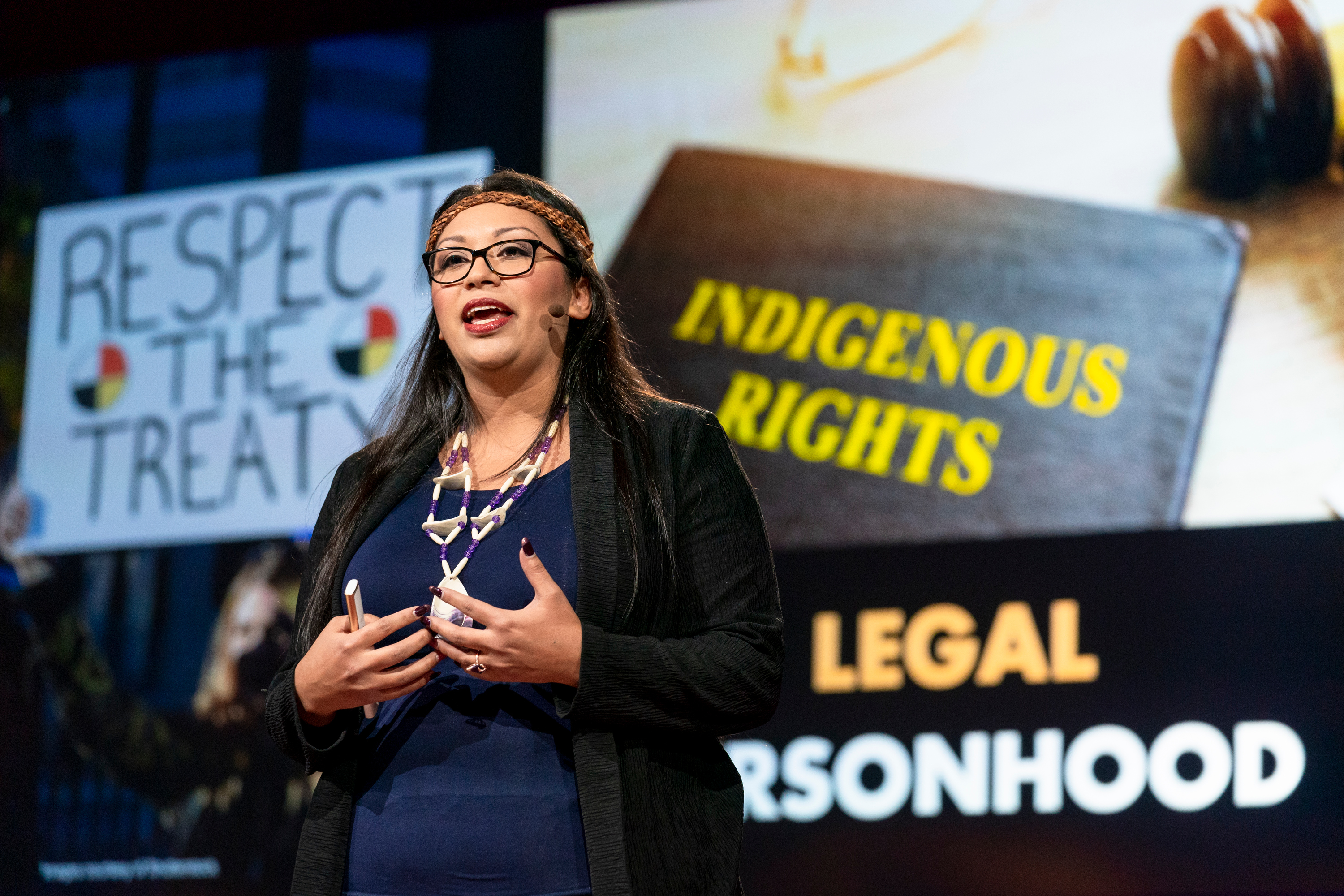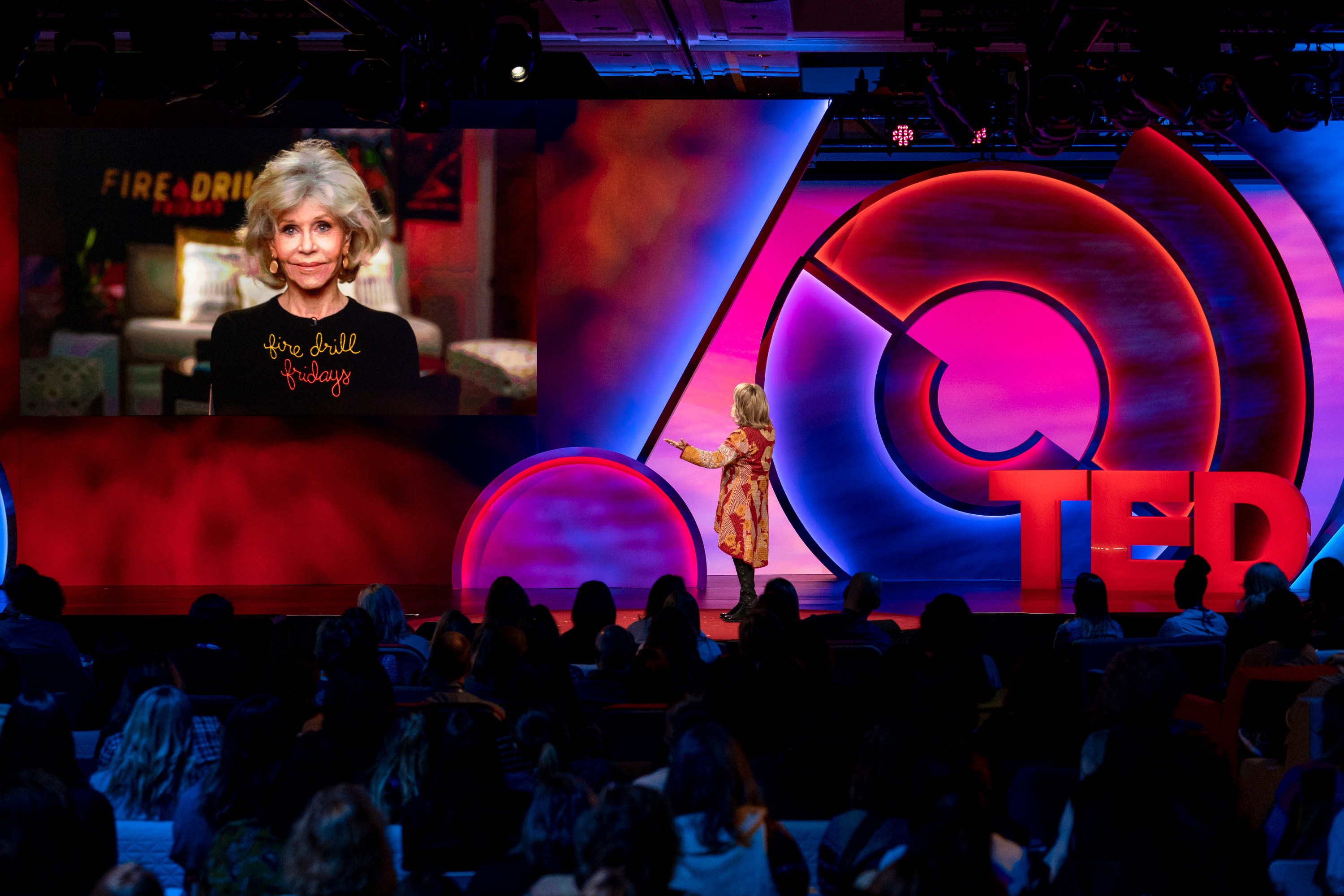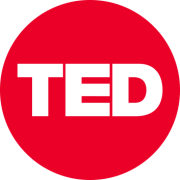https://blog.ted.com/planet-protectors-notes-from-session-3-of-tedwomen-2019/
- |
The world is experiencing the consequences of climate change and the urgency couldn’t be more clear. In Session 3 of TEDWomen 2019, we dug deep into some of the most pressing environmental issues of our time — exploring solutions and the many ways people across the globe are fighting for change.
The event: TEDWomen 2019, Session 3: Planet Protectors, hosted by Whitney Pennington Rodgers and Chee Pearlman
When and where: Thursday, December 5, 2019, 11am PT, at La Quinta Resort & Club in La Quinta, California
Speakers: Hindou Oumarou Ibrahim, Kelsey Leonard, Shawnee, Colette Pichon Battle, Renee Lertzman, Jane Fonda
Music: Singer-songwriter Shawnee brings their undeniable stage presence and music of empowerment to the stage, performing two songs: “Way Home” and “Warrior Heart.”
The talks in brief:
Hindou Oumarou Ibrahim, environmental activist
Big idea: To combat climate change, we must combine our current efforts with those of indigenous people. Their rich, extensive knowledge base and long-standing relationship with the earth are the keys to our collective survival.
Why? Modern science and technology date back only a few hundred years, but indigenous knowledge spans thousands, says Hindou Oumarou Ibrahim. As she puts it: “For us, nature is our supermarket … our pharmacy … our school.” But climate change threatens indigenous people’s — and all of humanity’s — way of life; in her nomadic community, some of their social fabric is unraveling under the strain of its effects. To ensure resilience in the face of these developments, she suggests a marriage of new and old learnings to map and share crucial information for global survival. “We have 10 years to change it. 10 years is nothing,” she says. “So we need to act all together and we need to act right now.”
Quote of the talk: “I think if we put together all the knowledge systems that we have — science, technology, traditional knowledge — we can give the best of us to protect our peoples, to protect the planet, to restore the ecosystems that we are losing.”

“We need to fundamentally transform the way in which we value water,” says Kelsey Leonard. She speaks at TEDWomen 2019: Bold + Brilliant on December 5, 2019 in Palm Springs, California. (Photo: Marla Aufmuth / TED)
Kelsey Leonard, indigenous legal scholar and scientist
Big idea: Granting bodies of water legal personhood is the first step to addressing both our water crises and injustices — especially those endured by indigenous people.
Why? Water is essential to life. Yet in the eyes of the law, it remains largely unprotected — and our most vulnerable communities lack access to it, says Kelsey Leonard. As a representative of the Shinnecock Indian Nation, she shares the wisdom of her nokomis, or grandmother, on how we should honor this precious resource. We must start by asking like: What if we asked who water is, in the same way that we might ask who is our mother? This perspective shift transforms the way we fundamentally think about water, she says — prompting us to grant water the same legal rights held by corporations. In this way, and by looking to indigenous laws, we can reconnect with the lakes, oceans and seas around us.
Quote of the talk: “We are facing a global water crisis. And if we want to address these crises in our lifetime, we need to change. We need to fundamentally transform the way in which we value water.”
Colette Pichon Battle, attorney and climate equity advocate
Big idea: Climate migration — the mass displacement of communities due to climate change — will escalate rapidly in coming years. We need to prepare by radically shifting both policies and mindsets.
Why? Scientists predict climate change will displace more than 180 million people by 2100. Colette Pichon Battle believes the world is not prepared for these population shifts. As a generational native of southern Louisiana and an attorney who has worked on post-Hurricane Katrina disaster recovery, Pichon Battle urges us to plan before it’s too late. How? By first acknowledging that climate change is a symptom of exploitative economic systems that privilege the few over the many and then working to transform them. We need to develop collective resilience by preparing communities to receive climate migrants, allocating resources and changing social attitudes. Lastly, she says, we must re-indigenize ourselves — committing to ecological equity and human rights as foundational tenets of a new climate-resilient society.
Quote of the talk: “All of this requires us to recognize a power greater than ourselves and a life longer than the one we will live. We must transform from a disposable, short-sighted reality of the individual to one that values the long-term life cycle of our collective humanity. Even the best of us are entangled in an unjust system. To survive, we will have to find our way to a shared liberation.”
Renee Lertzman, climate psychologist
Big idea: We need to make our emotional well-being a fundamental part of the fight against climate change.
How? What’s happening to our planet seems overwhelming. And while we have tons of information on the science of climate change, we know much less about its emotional impact. Renee Lertzman has interviewed hundreds of people about how climate change makes them feel, and she wants to equip us with a toolkit to handle our climate grief and still be able to take action. Patience, compassion and kindness are qualities we need to deploy more often in our conversations about the crisis, she says. As climate events push us outside our “window of tolerance” — the stresses we can withstand without becoming overwhelmed — numbness and apathy are natural responses. Many people tell her: “I don’t know where to start.” She recommends practicing attunement: listening to our own feelings and those of others, accepting them without judgement and meeting our experiences with curiosity. Whether we’re with a few friends or at a larger climate action gathering, remembering that we are human is a key ingredient in the fight for our world.
Quote of the talk: “These are hard issues. This is a hard moment to be a human being. We’re waking up.”

Civil disobedience is becoming a new normal, says actor and activist Jane Fonda. She speaks with host Pat Mitchell about Fire Drill Fridays, her weekly climate demonstrations, at TEDWomen 2019: Bold + Brilliant on December 5, 2019 in Palm Springs, California. (Photo: Marla Aufmuth / TED)
Jane Fonda, actor, author and activist
Big idea: In the wake of climate change, protest is becoming a new normal — at least until we see the changes we need.
Why? In a video interview with TEDWomen curator Pat Mitchell, Fonda discussed Fire Drill Fridays, the weekly demonstrations on Capitol Hill she leads in partnership with Greenpeace. Since moving to Washington D.C. in September, Fonda has staged a sit-in at the Hart Senate Office Building on Capitol Hill every Friday to protest the extraction of fossil fuels. At age 81, she has been arrested multiple times and spent a night in jail — and her actions are inspiring people around the world to host their own Fire Drill Fridays. But, she says, we don’t need to get arrested to raise awareness; there are many other ways to put pressure on lawmakers and hold governments accountable. Read a full recap of her interview here.
Quote of the talk: “I’m not leading. It’s the young people, it’s the students, that are leading. It’s always the young people that step up with the courage.”
